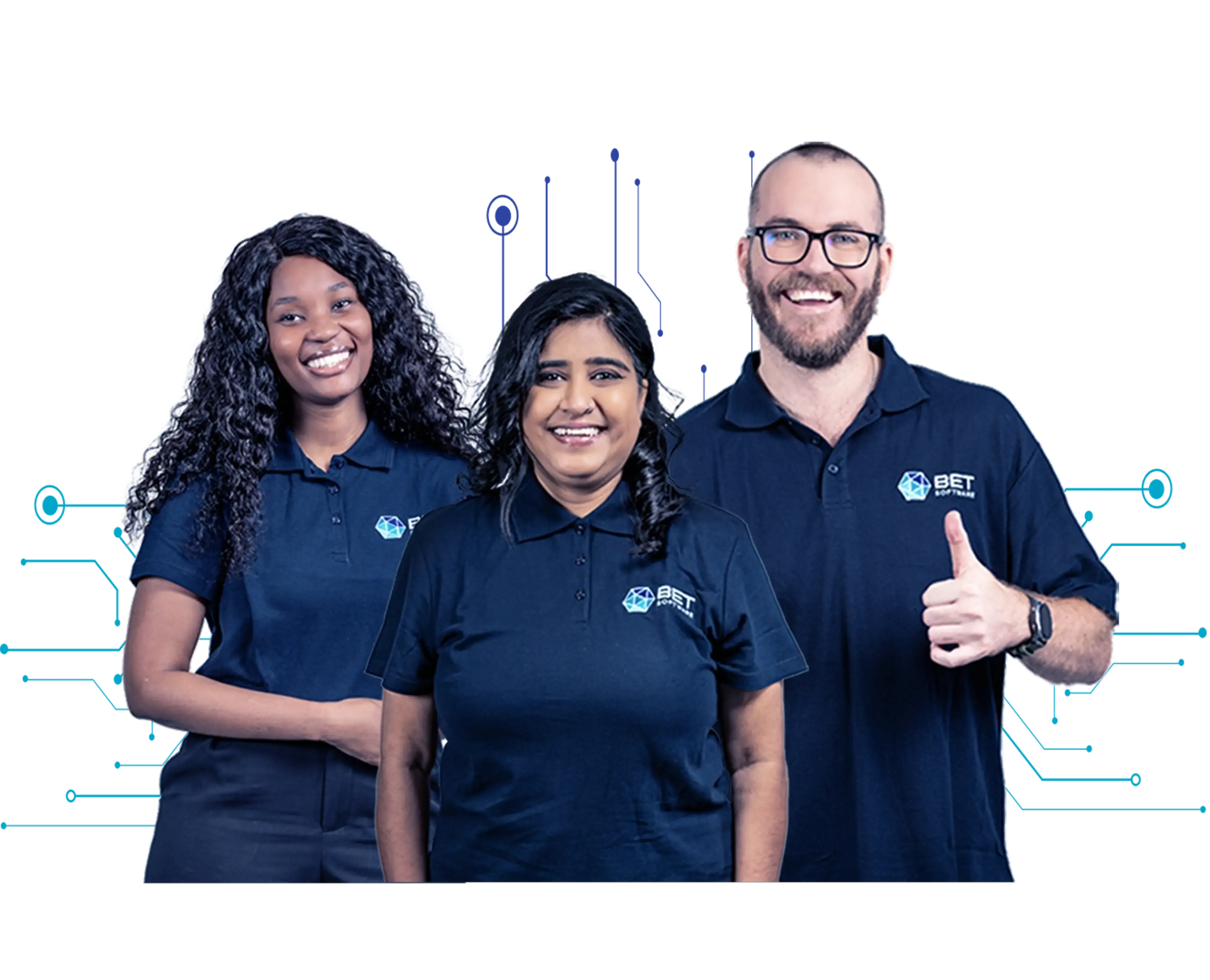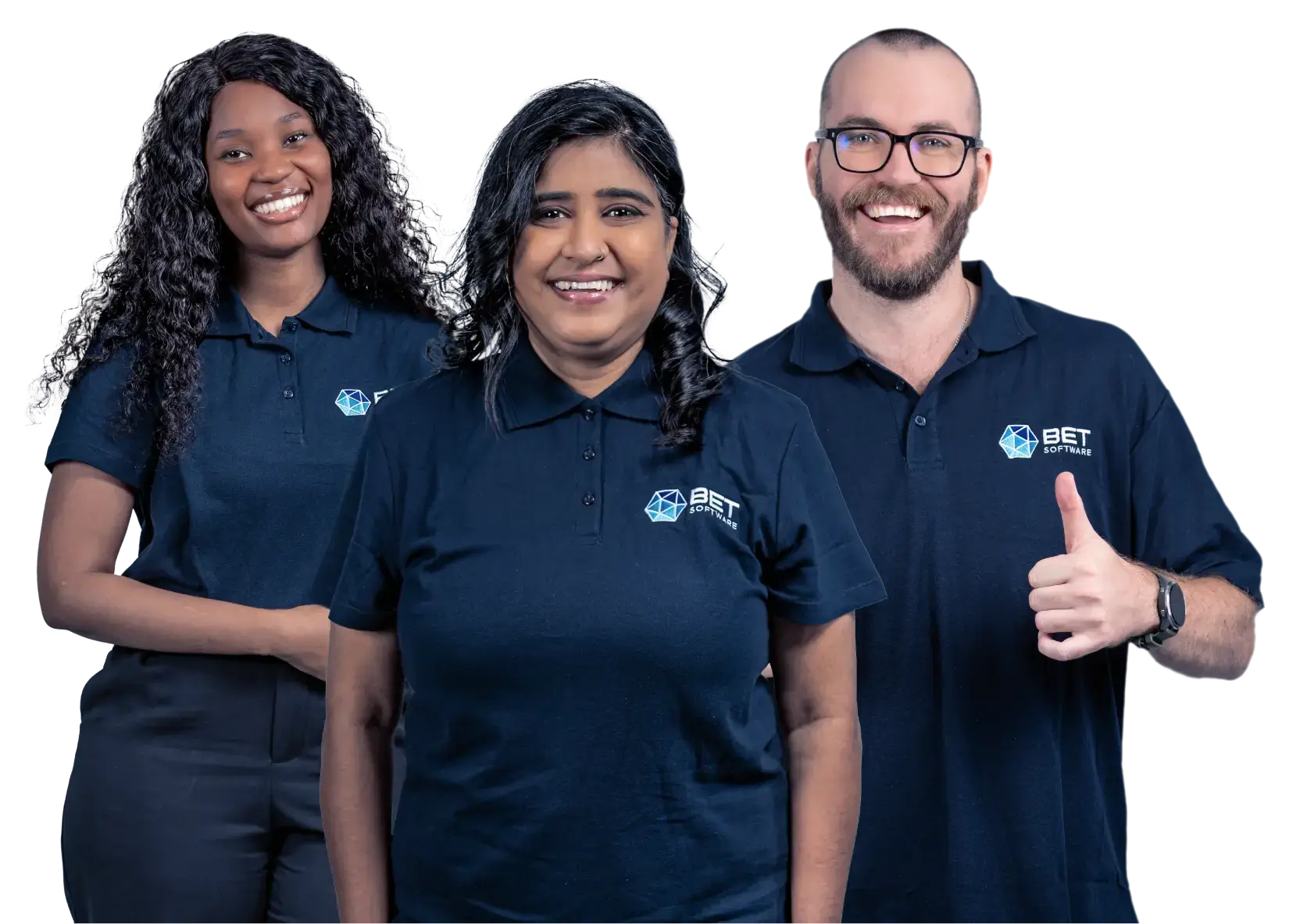
Do More of What
Makes You
Awesome
Our multiskilled Team is responsible for providing advanced software solutions, while supporting incredibly high transactional volumes in a fast-paced industry, making BET Software a lively and engaging place to be.




